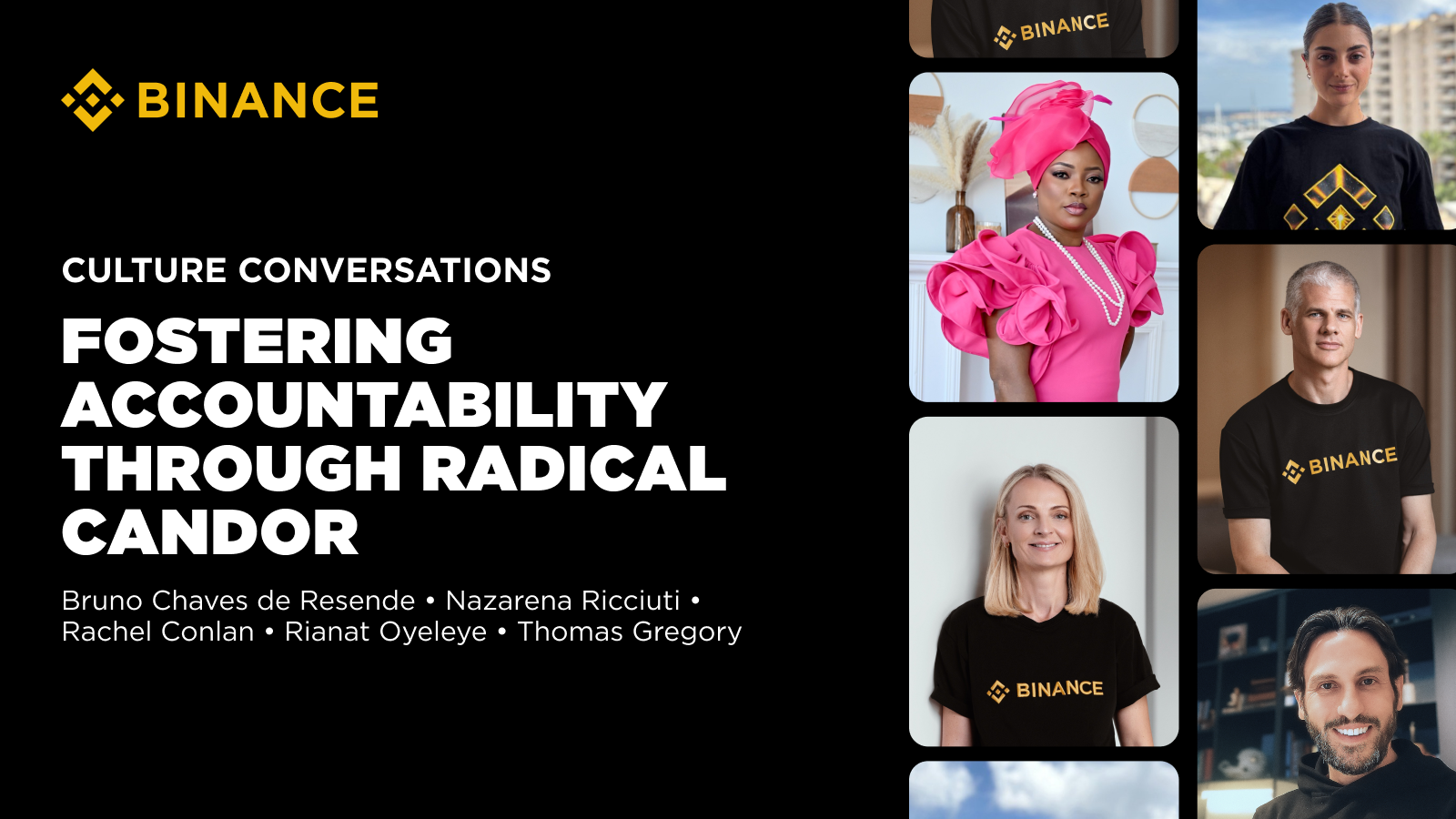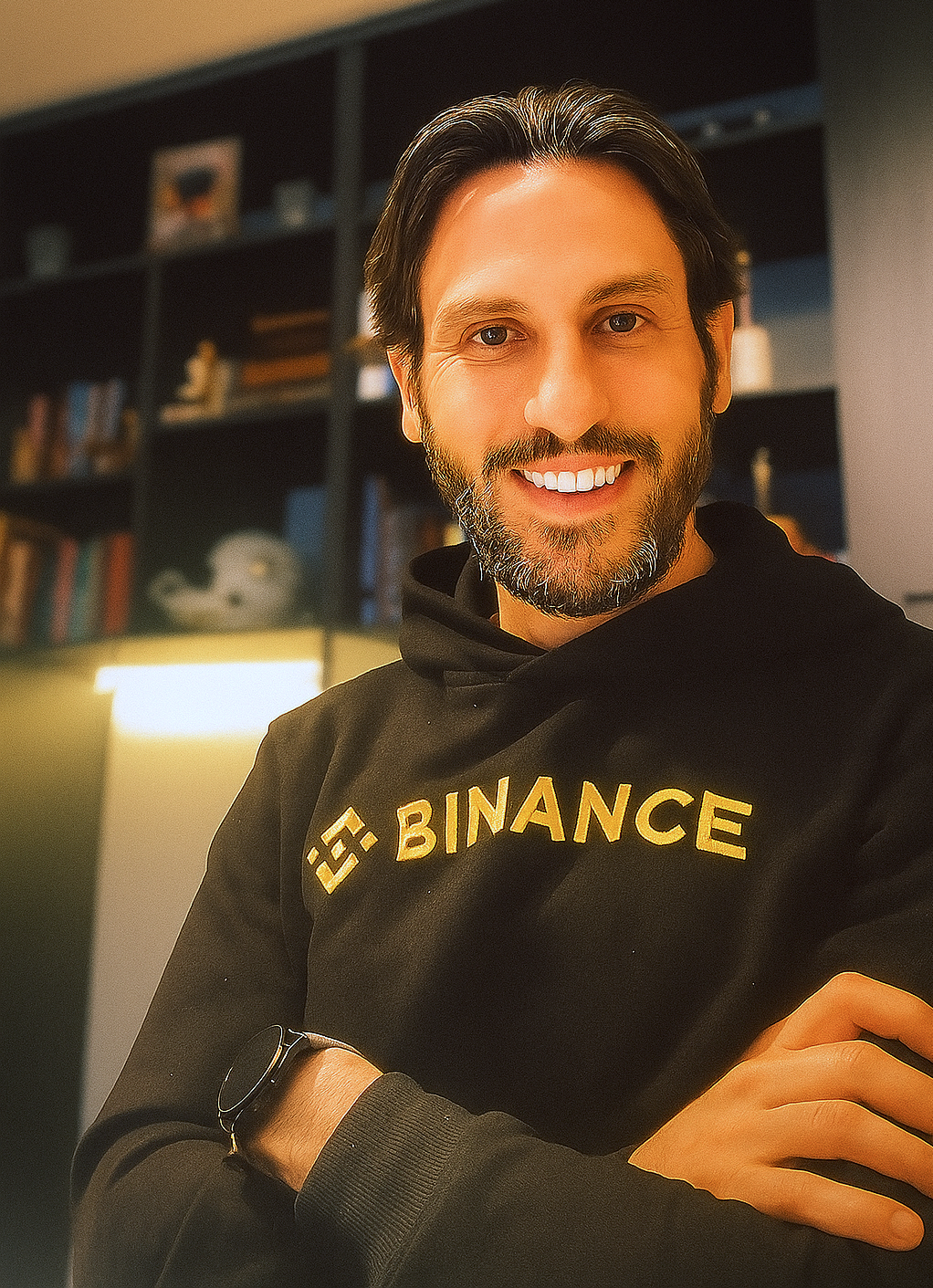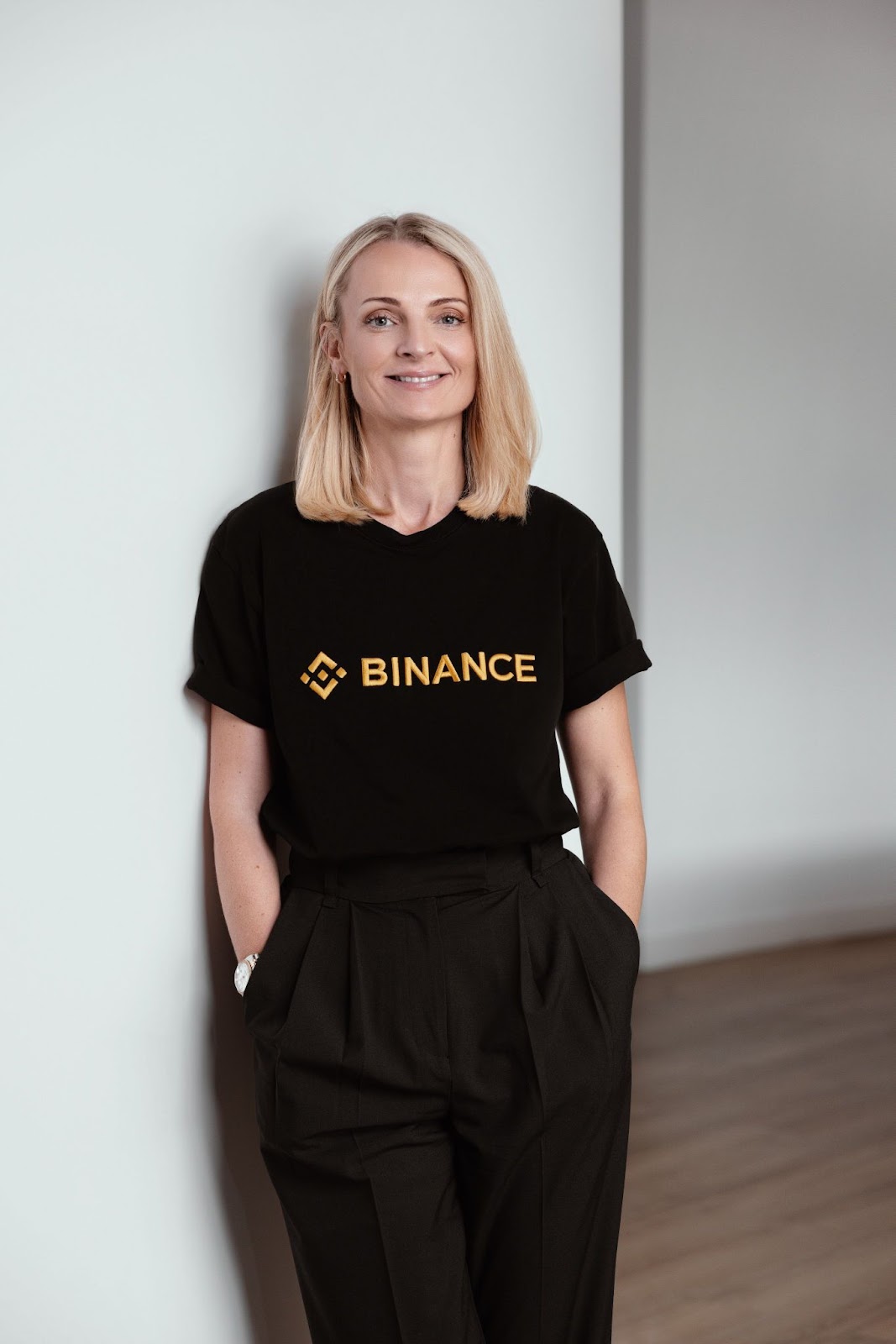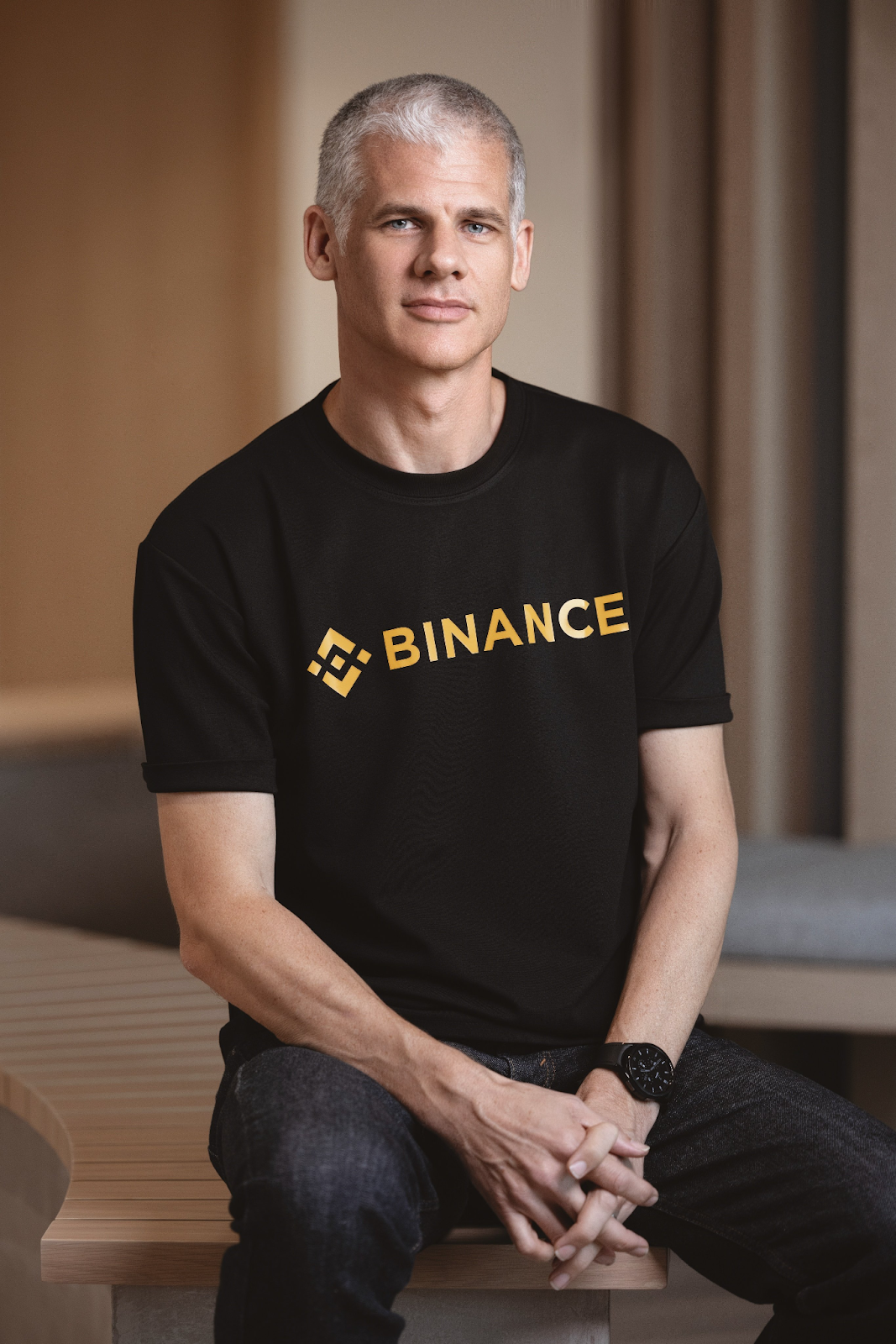Main Takeaways
Speaking up early isn’t just good for performance, it’s an essential part of fairness. Silence shifts problems onto others and slows everyone down.
Radical candor means delivering feedback with clarity, care, and respect. When done well, it helps teams solve issues before they grow.
At Binance, creating a fair culture also means designing space for every voice, so ideas and concerns don’t get lost in the noise.
At Binance, we often talk about speed: shipping fast, learning fast, growing fast. But there’s another kind of speed that matters just as much: how quickly we speak up when something isn’t working.
It can feel easier to stay quiet. Maybe you don’t want to be the person who points out a gap in a teammate’s work. Maybe you assume someone else will escalate the issue. Or you tell yourself that staying silent is kinder.
But in a high-stakes environment, silence isn’t kindness, it’s a risk. And it isn’t fair. When problems stay hidden, the burden doesn’t disappear. It just shifts onto the people who care most: the ones who end up carrying the weight, cleaning up the mess, or apologizing to our users.
Practicing fairness takes candor. It means saying the hard thing early before it becomes a bigger issue, and trusting that your teammates want to improve, just like you do. At Binance, we know: feedback, when delivered with clarity and care, is an act of respect.
Why Silence Hurts Fairness
When someone isn’t delivering, or a process is broken, avoiding the conversation can feel easier in the moment. But over time, it chips away at trust, clarity, and performance.
Bruno Chaves de Resende, Tax Director, Americas. Source: Binance
Bruno, our Tax Director for Americas, put it simply: “In a team environment, transparency and honest feedback are essential. If someone isn’t delivering what’s expected, it’s important to address it directly. Calling it out helps align expectations and ultimately leads to better results.”
Thomas, our Vice President of Fiat, agrees – and takes it one step further: “The leader can’t see or hear everything. That’s why it’s everyone’s responsibility to speak up when something’s not working. A team is only as strong as its weakest link, so peer accountability is essential.” He also noted that some teammates might be capable but struggling, and calling it out early allows support, mentorship, or course correction to kick in.
When no one speaks up, the cost doesn’t go away, it just gets paid by someone else. Usually, it’s the colleagues who step in late to fix the problem, work extra hours, or cover for mistakes that could have been prevented.
Rachel Conlan. Chief Marketing Office. Source: Binance.
Left unspoken, issues don’t fade. They grow, slowing us down, frustrating our teams, and impacting our users.
Rachel, our Chief Marketing Officer, shared: “If a colleague isn’t pulling their weight, it’s often because they lack focus, have personal issues, or simply don’t understand what needs to be done. When you escalate the issue as a teammate, it helps leadership see the situation and support the person.”
That’s why fairness and accountability are so closely connected. When problems stay hidden, nobody wins.
The Case for Radical Candor
Radical candor isn’t about being confrontational – rather, it is about being clear, timely, and constructive.
Sometimes, it means sharing uncomfortable truths so everyone can move forward faster. As Rachel put it: “If you stay silent, you become part of the problem. Frustration sets in, and the issue eventually surfaces anyway. It’s much more caring to call it out early so it can be addressed.”
Thomas highlighted that fairness starts with transparency – especially in feedback. “Being able to give and receive honest and direct feedback in near real time is essential to building a fair culture,” he said. His team even holds daily leadership calls dedicated to surfacing issues early, which he describes as “transformational” for encouraging internal escalations and minimizing user impact.
Feedback isn’t only about performance gaps – sometimes, it’s about ideas. In a fast-moving environment, speaking up can be the difference between an innovation that ships and one that quietly dies in a shared document.
Rianat, a Financial Crimes Investigator Team Lead, encourages her team to be vocal: “Binance is a big place; if you want your ideas to be noticed, you have to make your voice heard. No one will come looking for you if you stay quiet.”
Speaking up is an act of ownership, and it often takes courage. But courage becomes easier when you know your team has your back.
When Loud Voices Dominate
Of course, not everyone feels comfortable being the loudest in the room. For some, the barrier is the fear of not being good enough, or of being ignored, rather than the fear of conflict.
Nazarena Ricciuti, Customer Relationship Manager. Source: Binance.
Nazarena, a Customer Relationship Manager, shared: “I used to be quiet because I thought my ideas weren’t good enough. But my shift leader encouraged me to speak up. Now, I love bouncing ideas off my teammates and discussing them together.”
Bruno acknowledged this dynamic too: “The loudest voices do often get heard first. But that doesn’t mean their ideas are the best. What helps is creating an environment where people feel safe to share.”
This is where fairness meets inclusion. If the only ideas we act on are the ones shared loudly and publicly, we risk missing valuable insights from quieter contributors. Fairness means designing ways for every voice to count, whether that’s through structured retrospectives, anonymous suggestions, or simply asking, “What do you think?” before moving on.
Balancing Speed and Transparency
Thomas Gregory, Vice President of Fiat. Source: Binance.
Some worry that too much collaboration and feedback might slow things down. But ignoring problems doesn’t make them disappear, it just delays the cost. The real challenge is making space for feedback without stalling action.
Rachel shared: “Democratic votes can lead to a watered-down version of what’s really needed. Singular leadership, even if leaders sometimes get it wrong, gives the team focus and clarity to move forward.” To Rachel, fairness isn’t about group consensus on every decision, it’s about clarity, direction, and knowing someone is accountable.
Thomas agrees. For him, fairness and ownership go hand in hand. “There’s no monopoly on good ideas,” he said. “We shouldn’t be afraid of making bad decisions, as long as we learn from them. That only works if leaders are comfortable admitting when they’re wrong.”
At Binance, feedback helps surface issues early, but its decisive leadership that keeps momentum going. The key is transparency on both sides: leaders must own their calls, and teams must feel safe calling out what’s not working.
Cultural Perspectives on Feedback
Feedback isn’t one-size-fits-all. What feels direct and helpful in one culture can feel abrasive in another. That’s why fairness also means understanding context.
For Rianat, who leads a multicultural team in Estonia, public call-outs aren’t the default: “I don’t believe in naming and shaming people publicly. In my team, we’ve built a culture where anyone can report concerns anonymously to me. When I hear about performance issues, I schedule a private 1:1 to understand the root cause and figure out how to help. It’s about support, not embarrassment.”
Fairness requires flexibility. The goal isn’t to force everyone into the same style of feedback, but to make sure the message gets through and that everyone has what they need to improve.
Rianat Oyeleye, Financial Crimes Investigator Team Lead. Source: Binance.
Striking the Balance
So what does healthy escalation look like in practice? Here are a few tips distilled from our colleagues’ perspectives, ones that can be useful in any fast-paced team setting.
Be specific. Share clear examples of what isn’t working.
Focus on solutions. Don’t just flag problems – offer ideas for fixing them.
Stay kind. Assume good intentions and frame feedback as support, not blame.
Follow up. Check in to see if things have improved.
Escalation about making sure everyone has the information (and the support) to succeed.
Here are a few habits any team can adopt to normalize feedback:
Make feedback routine. When sharing observations weekly becomes normal, it feels less intimidating.
Model it from the top. When leaders admit mistakes or ask for input, it sets the tone.
Use structured formats. Retrospectives, 1:1s, and clear feedback channels can make sharing easier.
Celebrate candor. When someone surfaces a problem early, thank them – even if it’s hard to hear.
Final Thoughts
As Binance grows, so does our complexity. Problems don’t disappear on their own – and the longer they stay hidden, the bigger they get.
Building a fair, resilient work environment takes normalizing speaking up early. Because fairness is as much about how we reward success as it’s about how we handle setbacks and mistakes.
This is why Binancians are always encouraged to say something when they see something broken. Early feedback is a gift. Silence is rarely kindness. And when we have the courage to call things out with clarity, care, and candor, we build a culture that’s better for everyone.
If you missed the first part of this series, read Binance Hot Takes and Hard Truths – Redefining Fairness at Work to explore how we balance recognition, autonomy, and work-life balance.
Ready to help build the future of finance at the world’s largest crypto exchange? Explore opportunities on our Careers page and bring your courage, ownership, and ideas to a team that’s redefining what’s possible.
Further Reading
Binance Hot Takes and Hard Truths: Thriving Beyond the Comfort Zone
Culture Stars Insights: Feedback, Humility, and Growth
Binance’s Work Culture Explained






